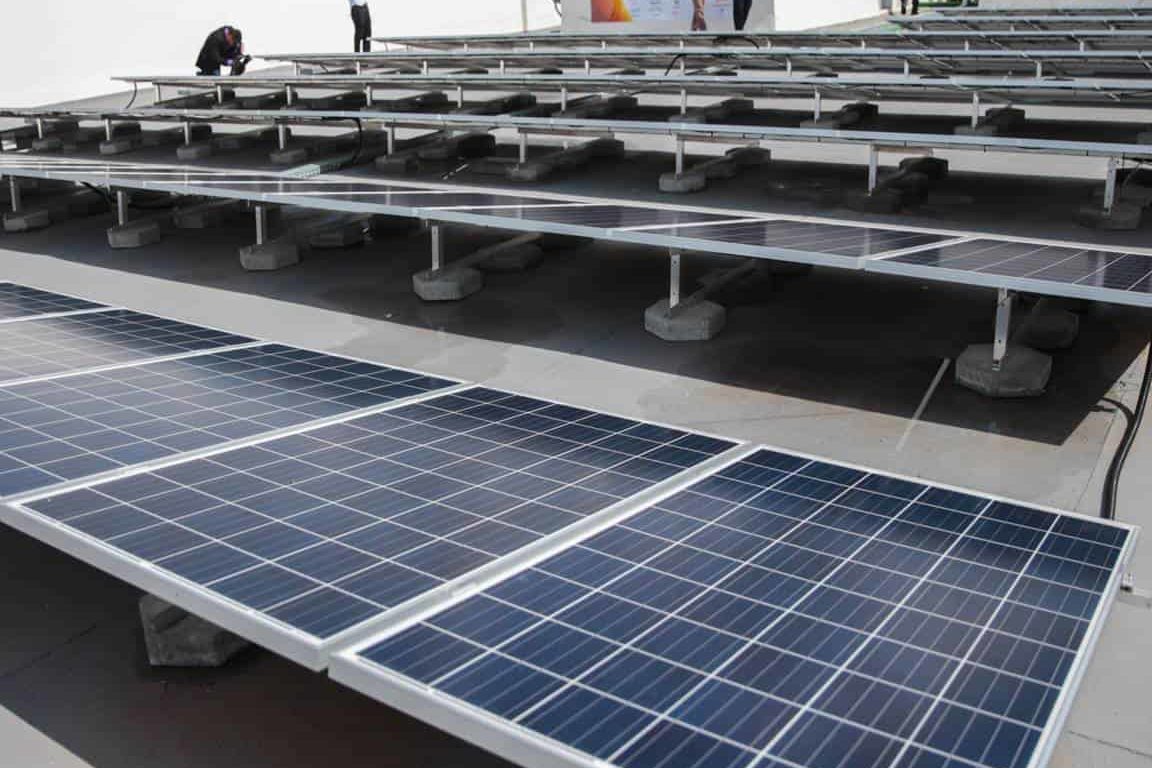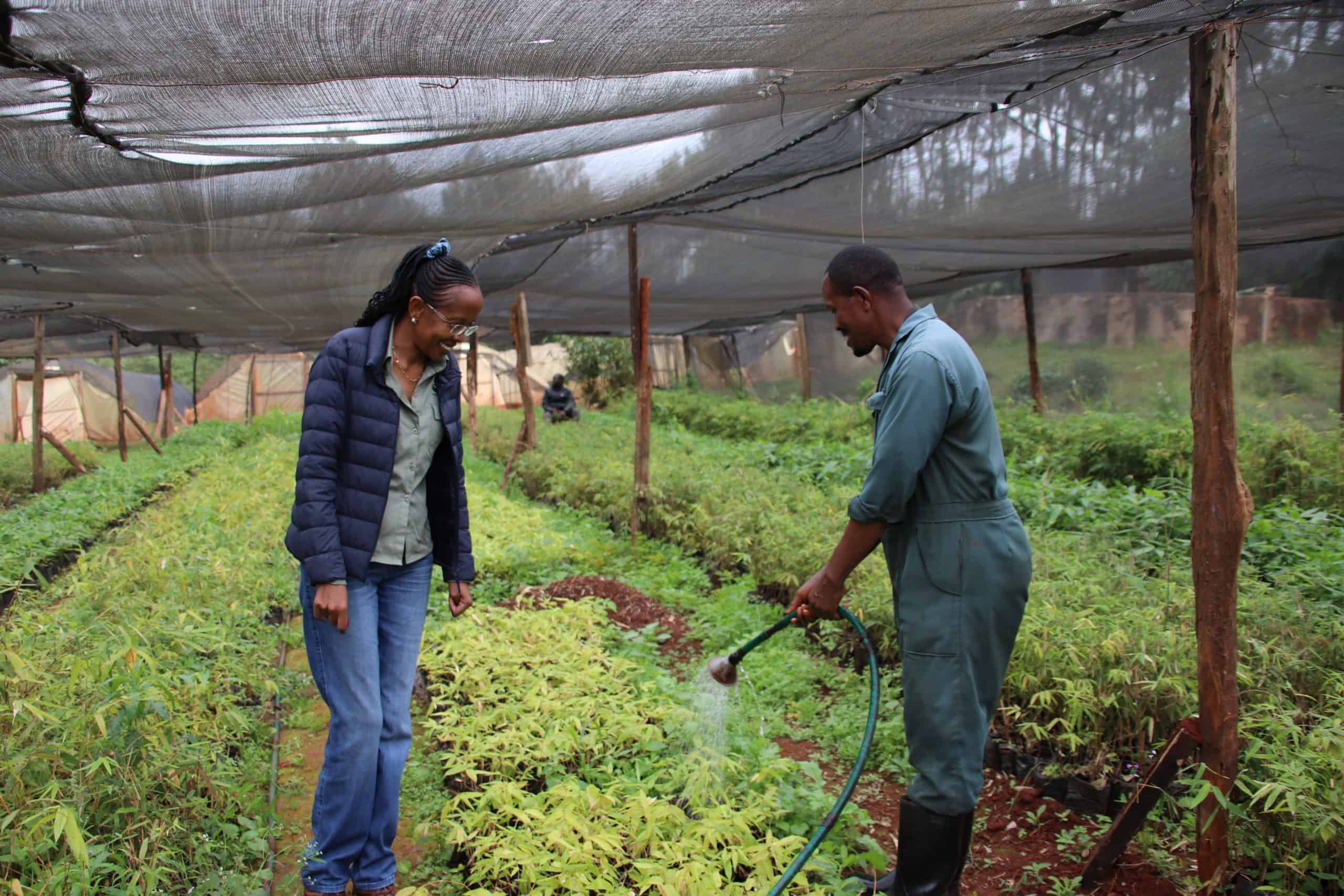The Lab is looking for innovative finance solutions that can unlock investment to tackle some of the most difficult climate and sustainable development challenges and investment opportunities for a net zero economy.
Proposed sustainable finance vehicles should offer returns for private investors, create jobs and other local economic benefits, sustain biodiversity, improve climate resilience and/or decrease emissions.
Climate finance entrepreneurs from all over the world can apply for the Global Innovation Lab for Climate Finance.
The deadline is Wednesday, December 22nd, 2021 at 17:00 PST. The new class will be announced in March 2022.
Before applying, read the full Lab guidelines and check out our FAQ. For any questions, get in touch at .
In 2022, the Lab will develop climate finance instruments from three thematic streams and three regional programs, plus one wildcard slot for the best idea across the adaptation and mitigation spectrum.
The COVID-19 crisis has exposed the fragility of food systems across the globe, which are already being impacted by the effects of climate change. People living in poverty, among which women are disproportionately represented, are most affected through health and livelihoods impacts.
Food systems are significant contributors to biodiversity loss and environmental degradation, through activities throughout the entire value chain. These activities include land use practices, deforestation, food production including waste and water management, energy use, and transport. At the same time, sustainable food systems contribute to long-term solutions, for instance through ecosystem services. Moreover, agriculture is the main source of livelihood in most developing economies. It is therefore of utmost importance to improve sustainability and resilience throughout the food system.
With support from Sida, the Swedish International Development Cooperation Agency, the Lab is seeking proposals for innovative financial instruments that support sustainable food systems. Ideas should alleviate poverty, increase productivity, and address biodiversity and climate change (adaptation and/or mitigation). This includes solutions in farming, waste management and input supply, as well as interacting systems, such as energy, trade and health.
Submissions should focus on climate-stressed regions, primarily across low and lower-middle income countries. Proposed sustainable finance vehicles should offer returns for private investors, create jobs and other local economic benefits, sustain biodiversity, improve climate resilience and/or decrease food-related emissions, while supporting a green, resilient recovery from the COVID-19 pandemic.
In addition to creating opportunities for private investors, successful ideas should incorporate different actors in the value chains as appropriate, e.g., producers/farmers (or their organization) buyers, distributors, and/or retailers. For additional guidance on ideas relating to agroforestry, forestry, and other land use, please check out the Call for Ideas Questionnaire Complement for AFOLU Ideas here.
Scaling up finance to sustainable buildings and construction activities is critical to reduce global emissions. Per IEA, the buildings and construction sector accounted for 39 percent of energy and process-related CO2 emissions in 2018. Aligning the built environment with sustainable pathways, particularly in emerging markets with accelerating urbanization, is essential to achieving global climate goals.
The Lab is seeking proposals for innovative financial instruments that, directly or indirectly, resolve market barriers and support scale-up of private finance for solutions that generate climate benefits in the buildings and construction sector. Submissions should focus on emerging markets with significant existing or potential infrastructure growth.
Proposed finance vehicles should support the mobilization of finance towards activities in the building and construction sector, offer returns for private investors, create jobs and other local economic benefits, thereby supporting a green, resilient recovery from the COVID-19 pandemic. Target activities of financial instruments could include reduction in carbon intensity of building materials; use of sustainable local materials; improved heating/cooling and insulation design; construction of new or retrofitted net-zero public buildings and public housing.
The Government of India has made it a national priority to drive development and access to electricity through cleaner growth, such as renewable energy and energy efficiency, including through an ambitious target of 40% of its electricity generation capacity from non-fossil fuel sources by 2030. However, India needs more capital, and at more attractive terms, in order to build the green infrastructure required.
Increasing investment from the private sector is essential to driving the country’s infrastructure growth. Currently, high risks and other poor terms of financing may be limiting investment potential in India.
The Lab is seeking innovative solutions to finance infrastructure for renewable energy and other channels for green growth, providing concrete solutions to the unique financing challenges to investment in green infrastructure in India.
The Lab’s Southern Africa program is looking for innovative finance instruments that address issues unique to the Southern Africa Development Community (SADC) region. Due to a combination of exposure to climate change stresses and low adaptive capacity, the SADC includes some of the most vulnerable countries to climate change.
With 70% of regional water resources crossing national boundaries, water resource management is recognized by all Southern Africa states as a priority to act upon.
Increasing sustainable energy production and access is another item at the top of most SADC states’ Nationally Determined Contributions agenda. By 2027, the SADC countries have pledged to fulfill their 150GW hydropower generation potential, from 12GW in 2013.
Sustainable land use and forestry, transportation, and waste treatment are additional top priorities.
National budgets can cover only a fraction of the required investments. International public and private financing, as well as capacity-building support, are needed for these countries to reach their targets
Scaling up climate adaptation finance is critical to building global resilience to worsening climate impacts. While resilience investment is growing, it is far from what is needed. In 2019-2020, USD 46 billion was tracked in climate adaptation investment, compared to an estimated annual requirement of USD 140 to 300 billion annually in developing countries alone to address crucial climate-related risks. While the majority of this gap will need to be filled by private financiers, of the USD 46 billion in annual adaptation finance in 2019-2020, just USD 1 billion was tracked from private investors (approximately USD 500 million each from corporations and institutional investors). There is an urgent need to create bankable, adaptation investment opportunities in developing countries that will attract private investment and help to shift global investment trends.
Adaptation financial instruments are often cross-sectoral and span interventions that build physical climate resilience of assets (e.g., infrastructure hardening and early warning systems), improve the climate-resilience of supply chains, and interventions that support systemic climate resilience (e.g., flood mapping, disaster risk management, and many nature-based solutions). There is a critical need to develop and scale a broad array of financial solutions, including project finance, insurance, bonds, and guarantees that enable capital to flow to adaptation investments.
The Lab is seeking proposals for innovative financial instruments that, directly or indirectly, resolve market barriers and support scale-up of private finance for solutions that build climate resilience. Submissions should focus on climate-stressed regions, across developing countries, and should identify how the proposed financing approach would address specific climate risks and barriers to mobilizing finance for adaptation.
Submitted finance vehicles should offer returns for investors and have a strategy to phase out public financial support while scaling private investment. Vehicles should also demonstrate potential to build climate resilience, avoid maladaptation, support improved livelihoods, and strengthen a broader financial ecosystem that can scale adaptation finance.
Brazil aims to reduce greenhouse gas emissions by 37% below 2005 levels by 2025, and by 43% by 2030. To this end, the country intends to achieve zero illegal deforestation in the Brazilian Amazon and to restore 12 million hectares of forests, while also increasing the use of renewables to 45% of the energy mix, among other measures. However, like in many emerging economies, funding to meet these targets remains a challenge.
The Lab is seeking transformative investment solutions that can drive funds for Brazil’s national climate priorities.
The Brazil program is funded by the Federal Ministry of the Environment, Nature Protection, and Nuclear Safety of Germany (BMU), through implementation support from the German Society for International Cooperation (GIZ).
The Lab seeks the most transformative ideas – both mitigation and adaptation – in developing and emerging economies, including those that do not fit in the priority sectors included here.
On November 16th, the Lab is hosting a webinar that will cover the 2022 call for ideas application process.
The session will present case studies from previous cycles and a Q&A segment.
The Lab is composed of over 60 expert institutions in government, development finance, philanthropy, and the private sector. The full list of Lab Members can be found here. The funders for the Lab’s 2021 cycle are included below. Climate Policy Initiative serves as the Lab Secretariat.

Successful ideas are selected by Lab Members and other experts based on the following criteria.
Identifies (1) the type of entity(ies) that could implement it, (2) the pathway towards implementation, including the timeframe, activities, and key milestones, and (3) possible challenges to implementation and related management strategies.
Demonstrates the ability to address, directly or indirectly, barriers to private climate finance that (1) have not yet been addressed or (2) that will be addressed more effectively compared to other instruments in the market.
Demonstrates potential to (1) mobilize private climate capital within a sizeable market, (2) be scaled up or replicated in other contexts and, (3) achieve socioeconomic, development, and environmental impacts.
Identifies (1) a strategy to phase out public financial support, thereby achieving market viability and (2) possible challenges to achieving its intended objectives and related management strategies.
Selected ideas will receive guidance and support from high-level leaders from both the public and private sectors, who contribute expertise, political capital, and financial capital to the instruments. See the full list of Lab Members here.
Selected ideas will also benefit from robust analysis, stress-testing, and development by Climate Policy Initiative’s team of experts.
$250 thousand
value of analytical and communications support received by selected Lab ideas
$2.5 billion
mobilized by Lab instruments endorsed in previous cycles
$370 million
invested by Lab Membership of over 60 expert institutions
If your idea is selected by Lab Members, you will work with a team of analysts, key stakeholders, and experts to:
✓ Develop or refine the mechanics of your idea
✓ Survey comparable instruments, ensuring the final instrument is innovative and impactful
✓ Develop robust financial modeling
✓ Assess and document potential social and environmental impacts
✓ Map risks and risk mitigation strategies
✓ Develop a detailed implementation plan
✓ Produce promotional content
✓ Present your idea to donors and investors
✓ Potentially receive endorsement from the Lab
Below are a few examples of Lab instruments that were launched and endorsed in previous Lab cycles, and their latest impact and progress. To learn more about all previous Lab instruments, visit Ideas.

SFC is a private equity fund seeking to scale mid-sized climate resilient infrastructure projects at the sub-national level, featuring a technical assistance facility to provide local government capacity building and certifying all projects for SDG impact prior to investment. It has secured USD 150 million for a first-loss tranche of the SCF’s investment fund

The Green FIDC allows clean energy and energy efficiency projects to secure financing based on future cash flows from sales. The Green FIDC builds on a Brazil-specific instrument used by companies to raise capital by securitizing receivables. It has raised USD 50 million for expanding solar distributed generation in Brazil.

TerraFund provides loans to SMEs working in land restoration in Africa, South Asia, and Latin America, benefiting from a unique partnership with WRI’s Land Accelerator. Upon graduation from the accelerator, these SMEs will be able to apply for credit from the bond.